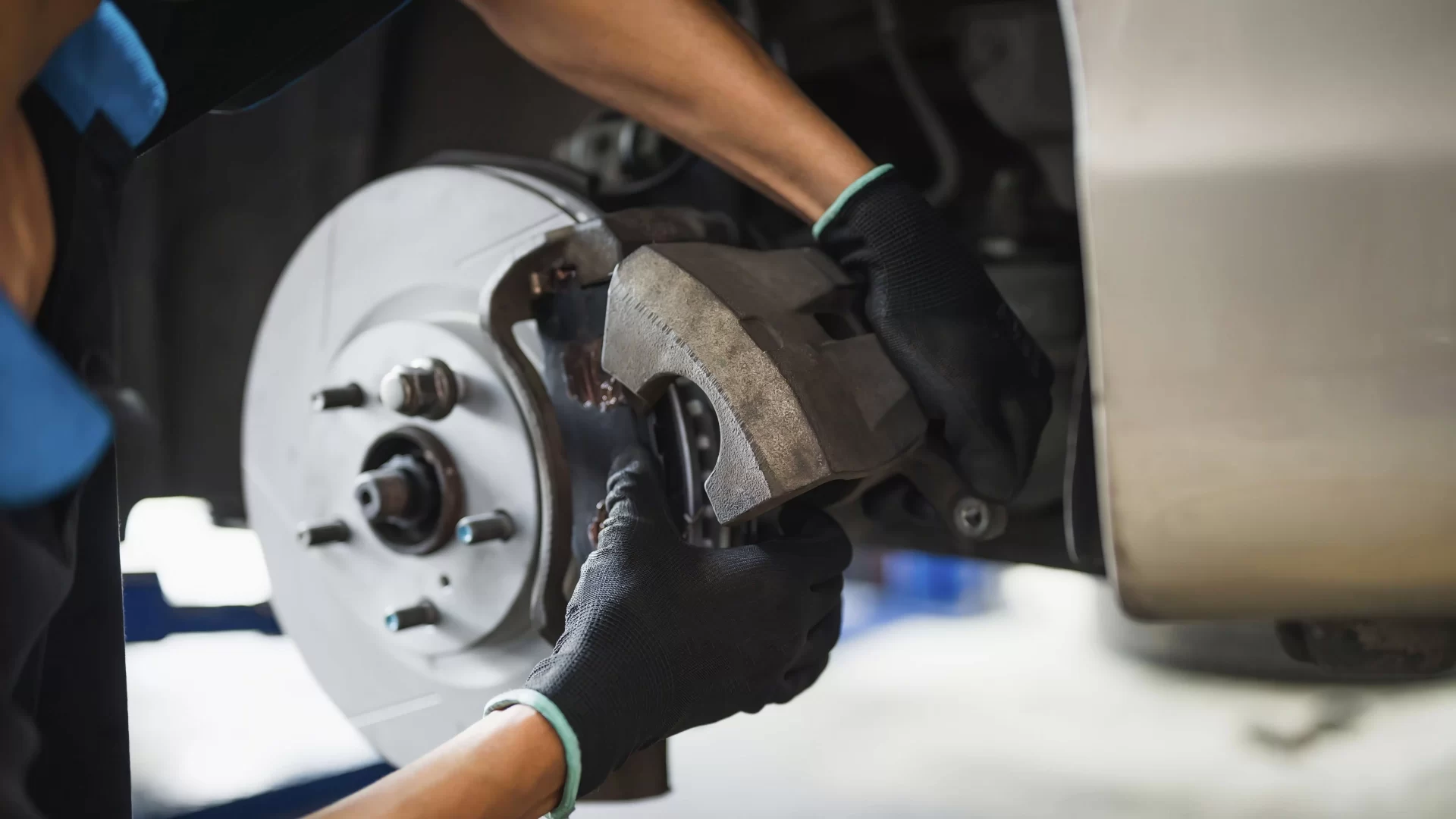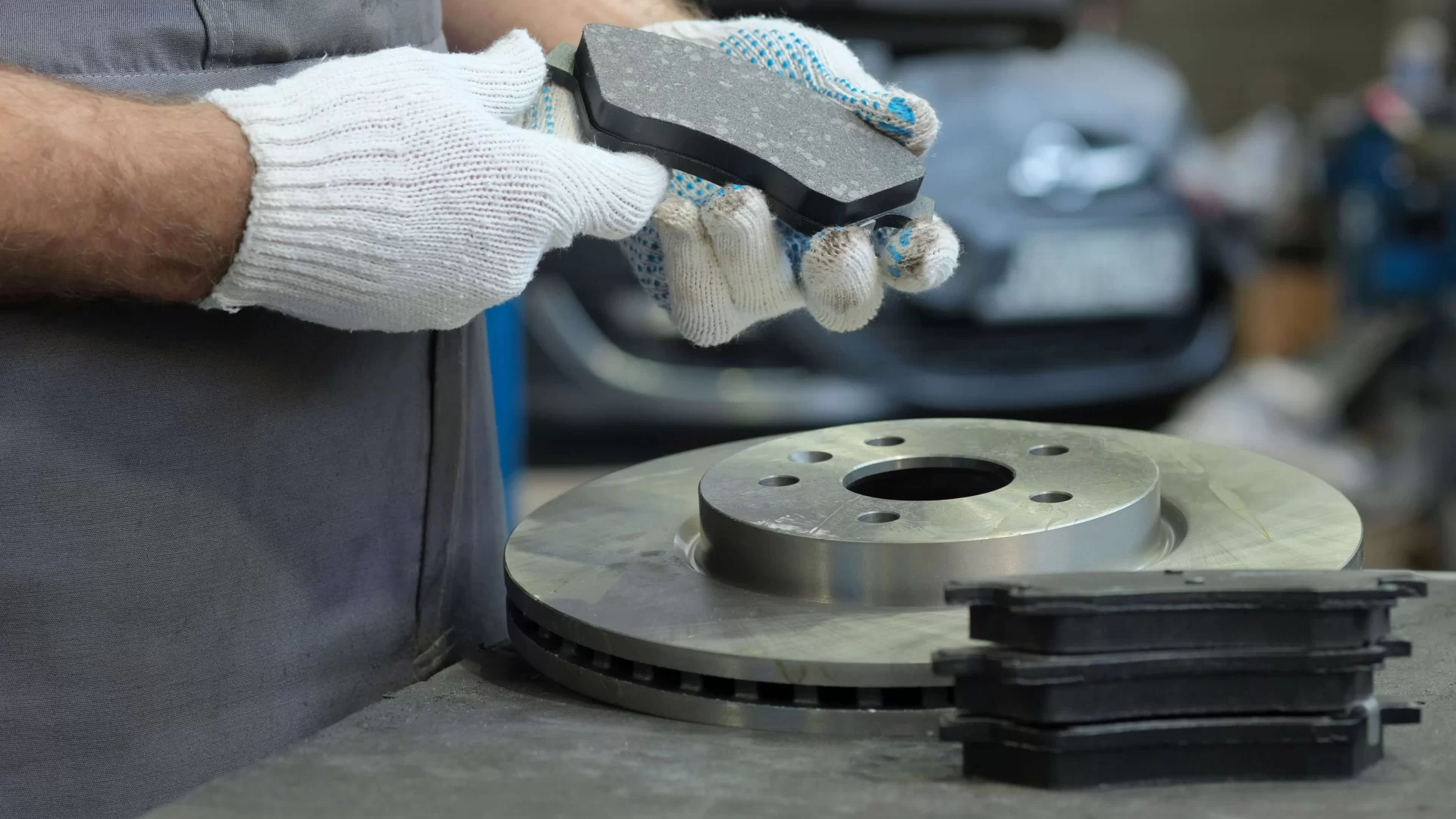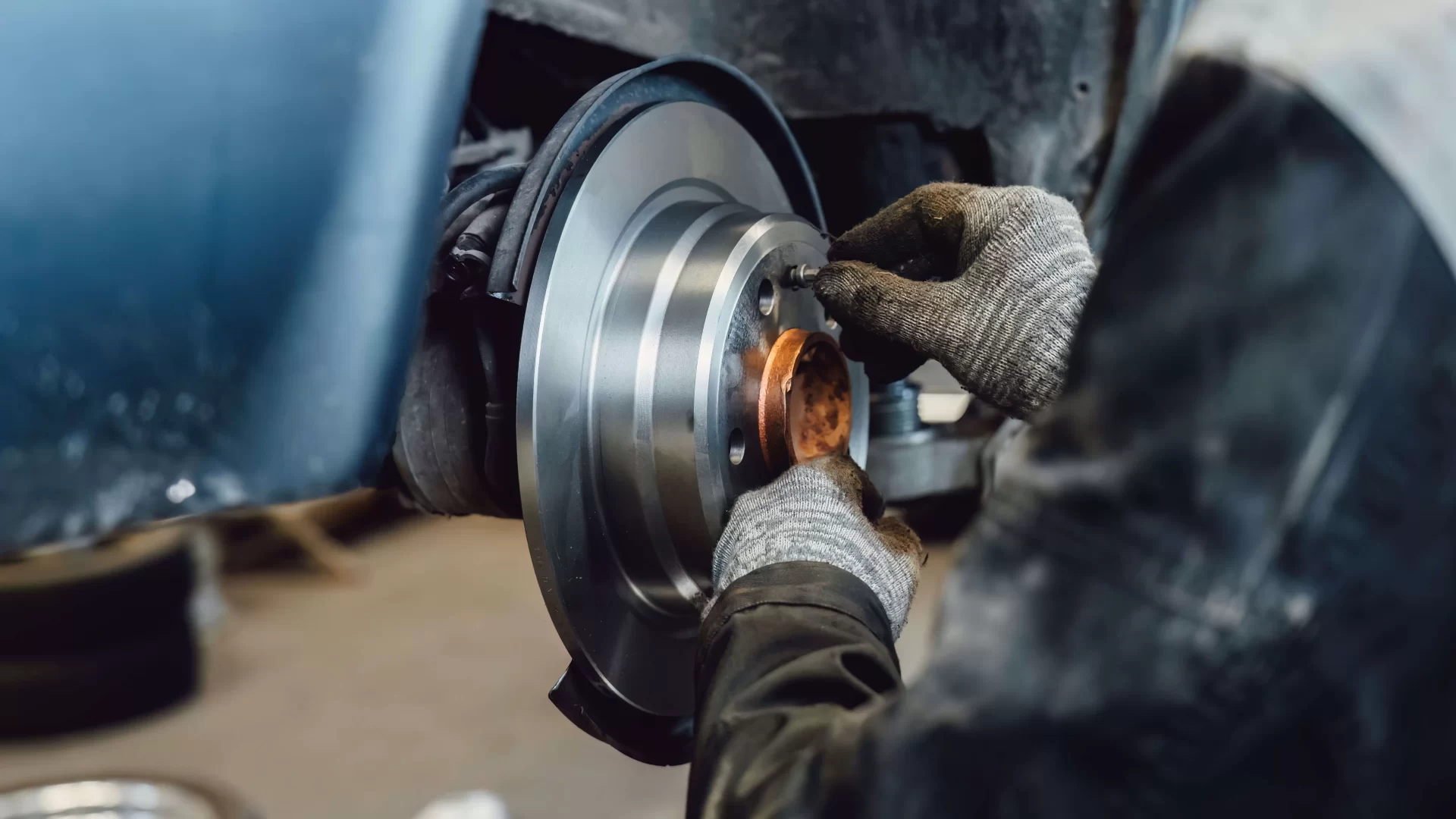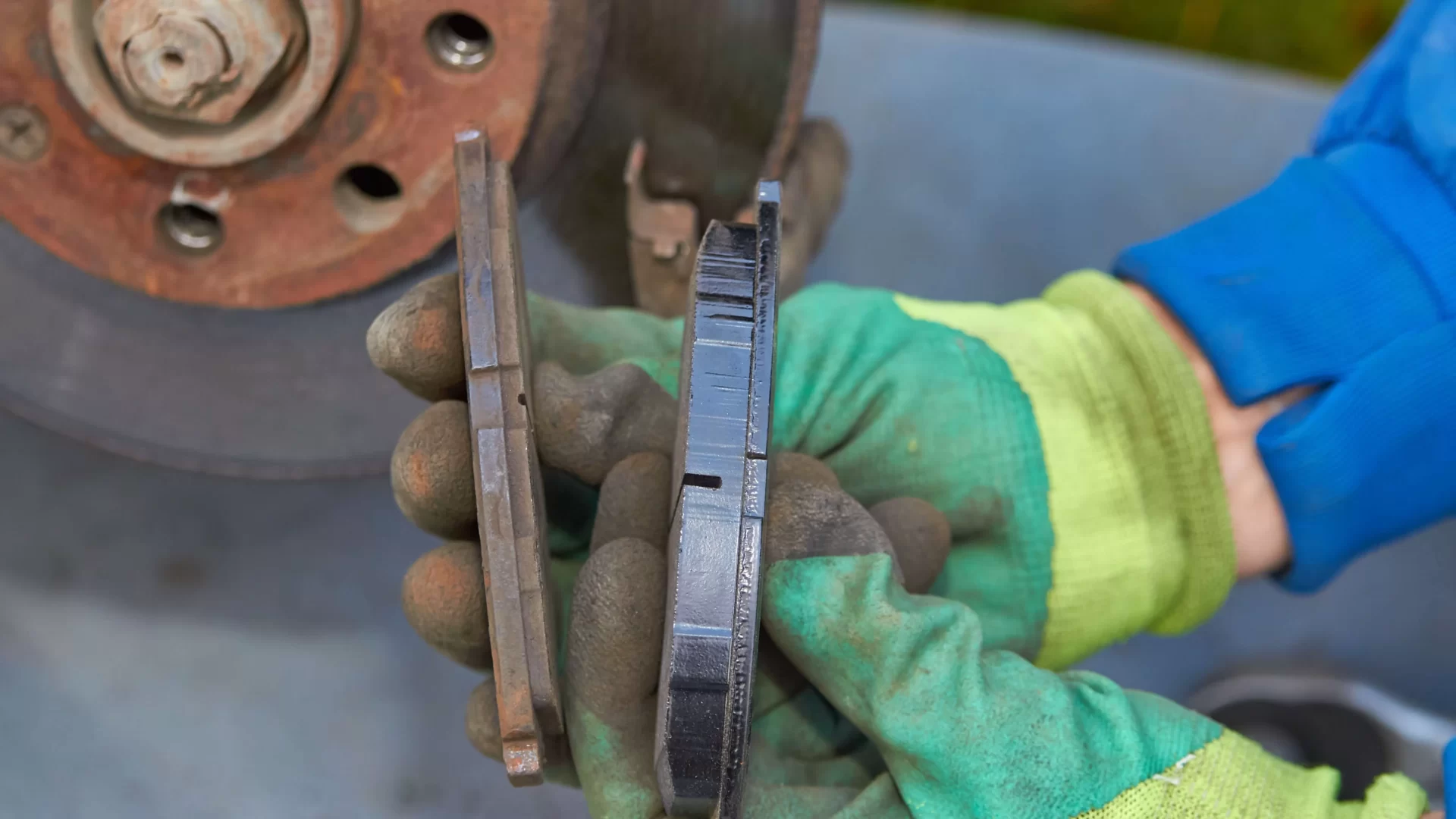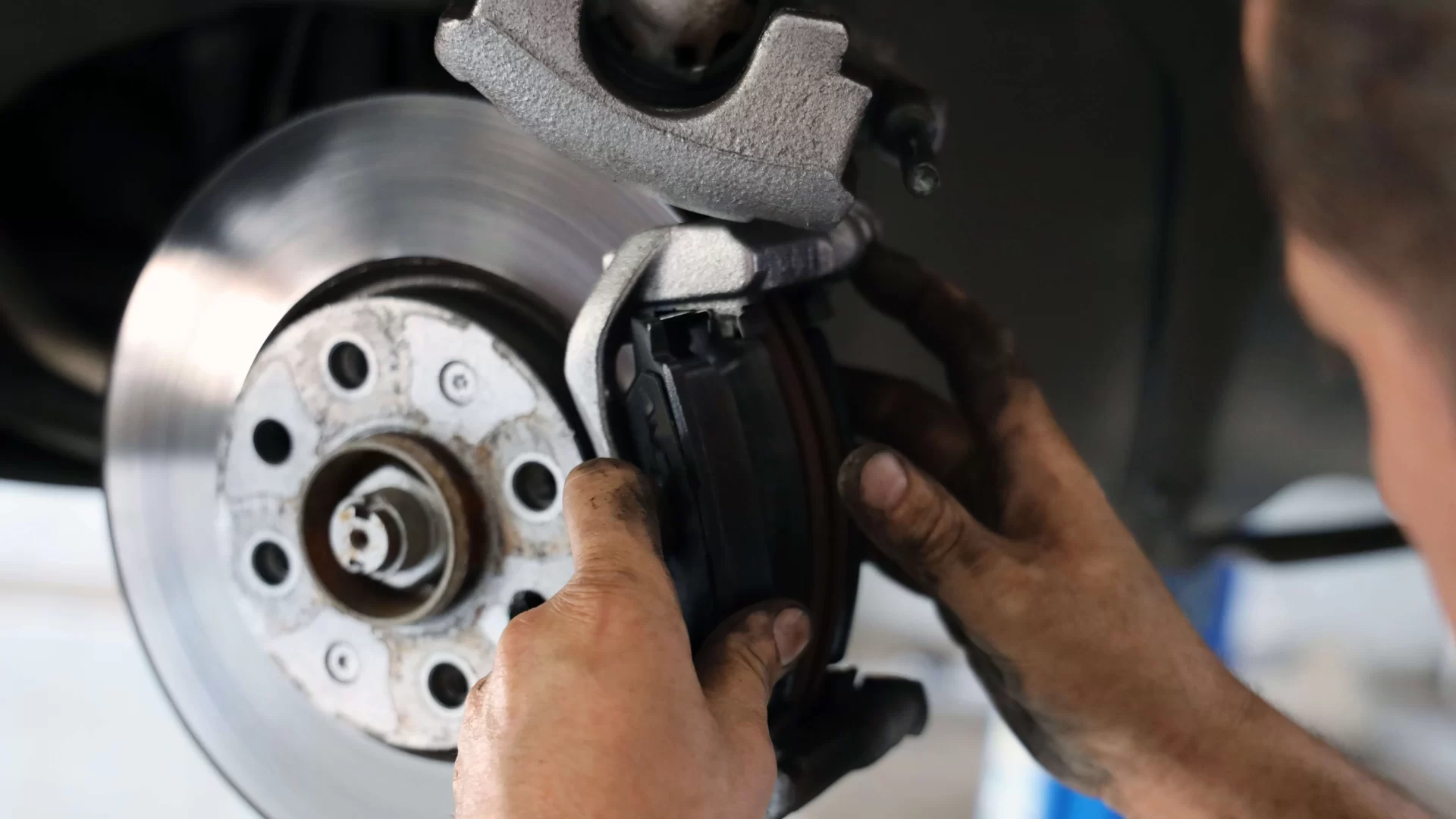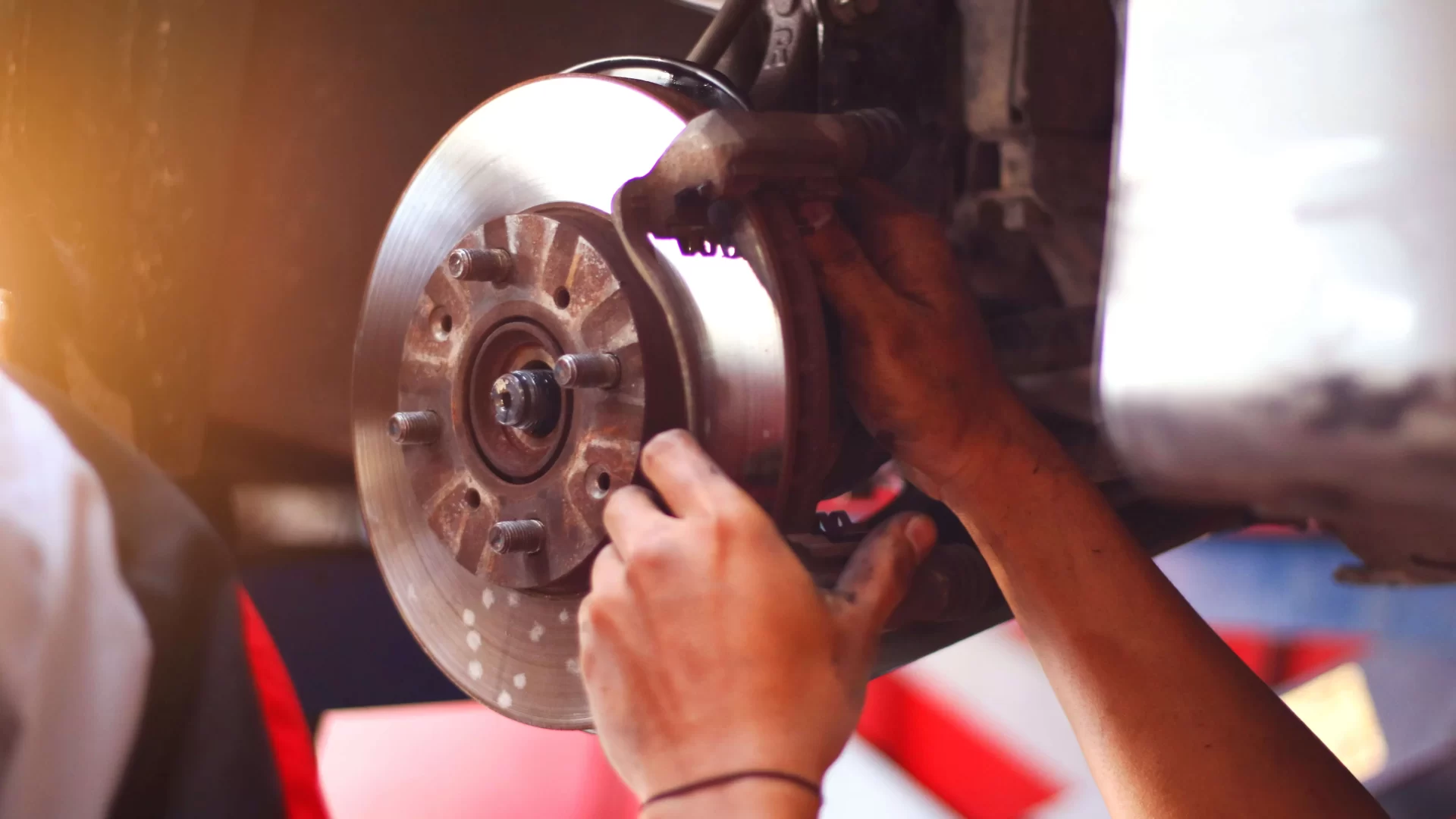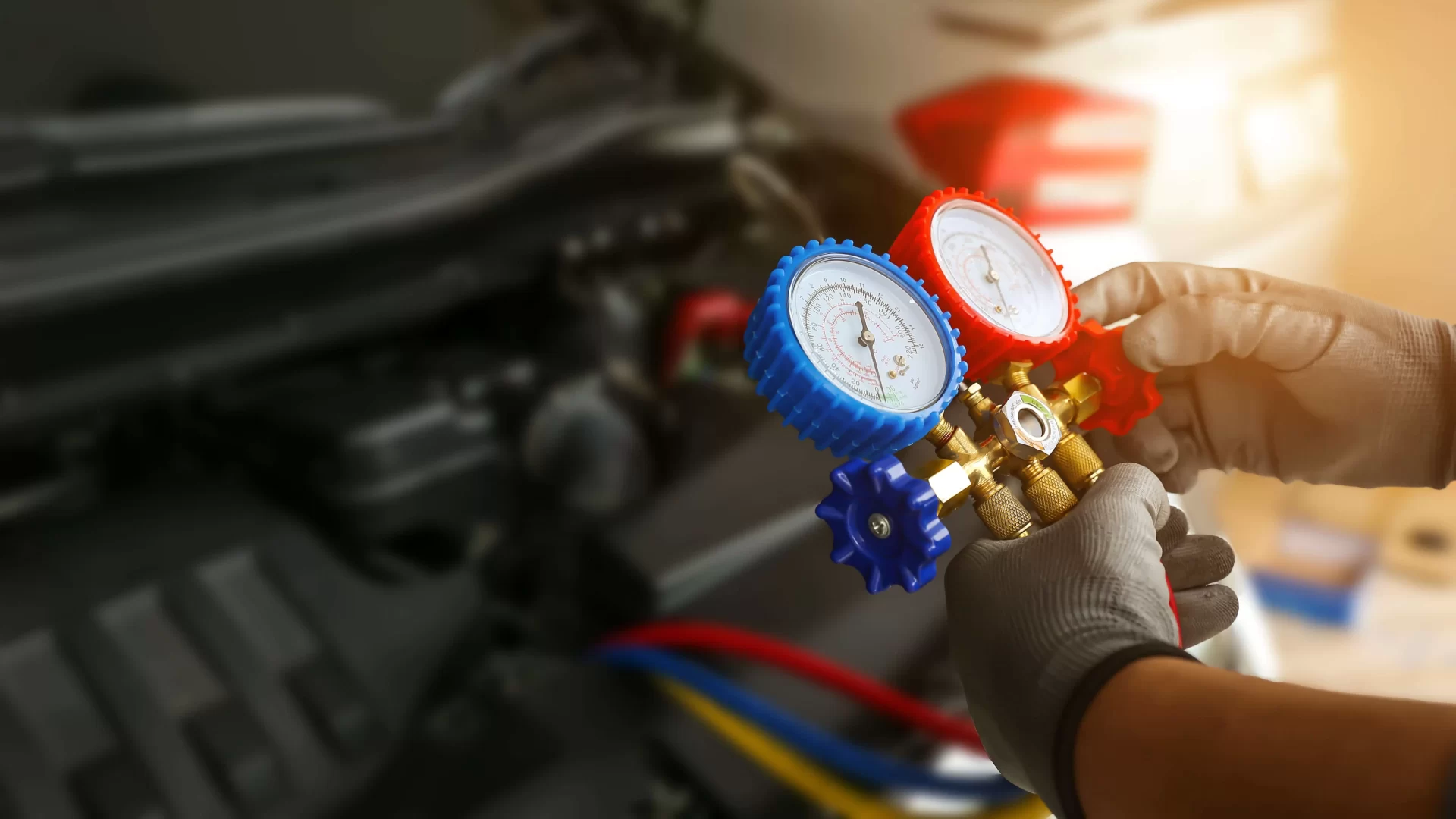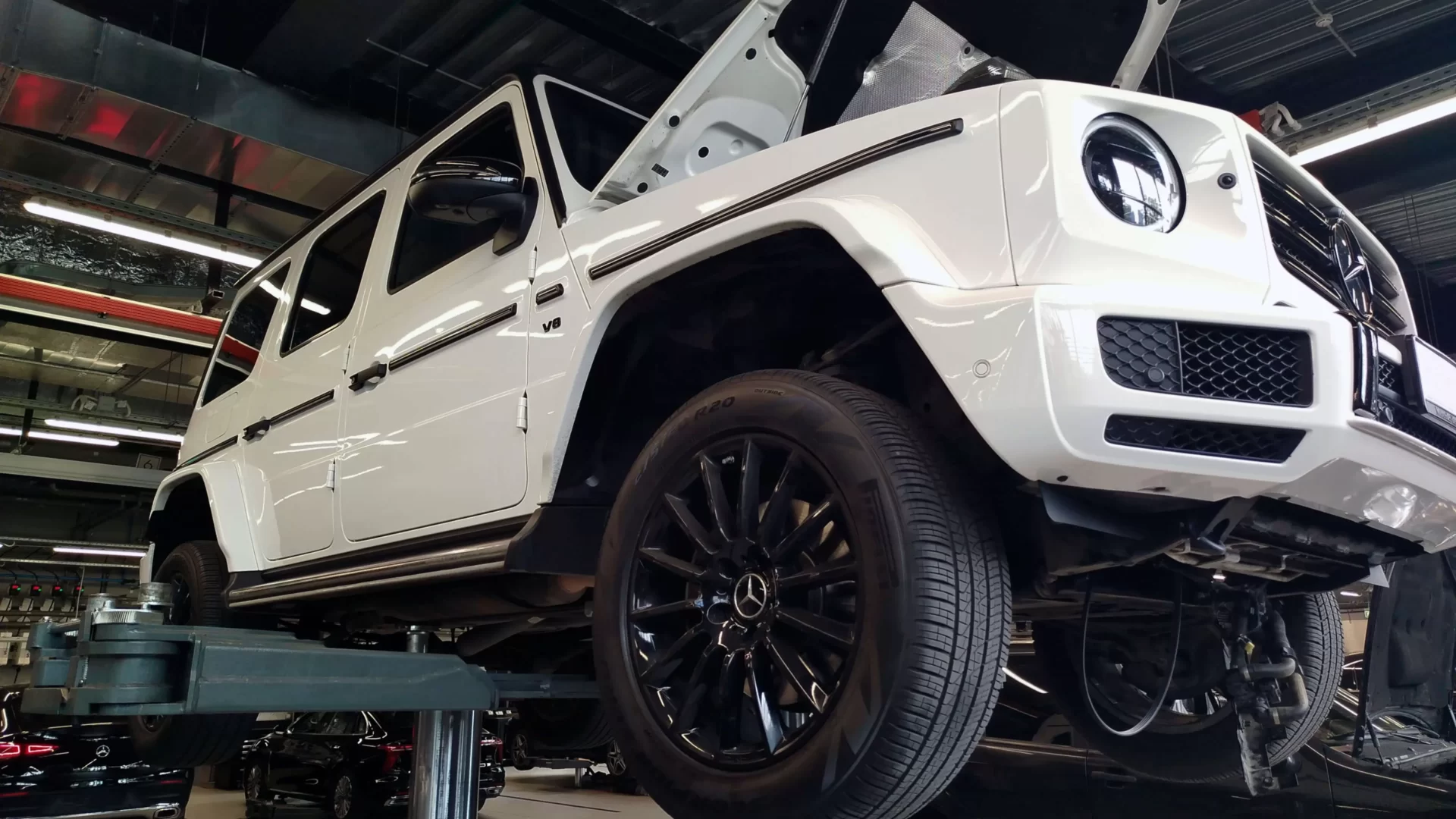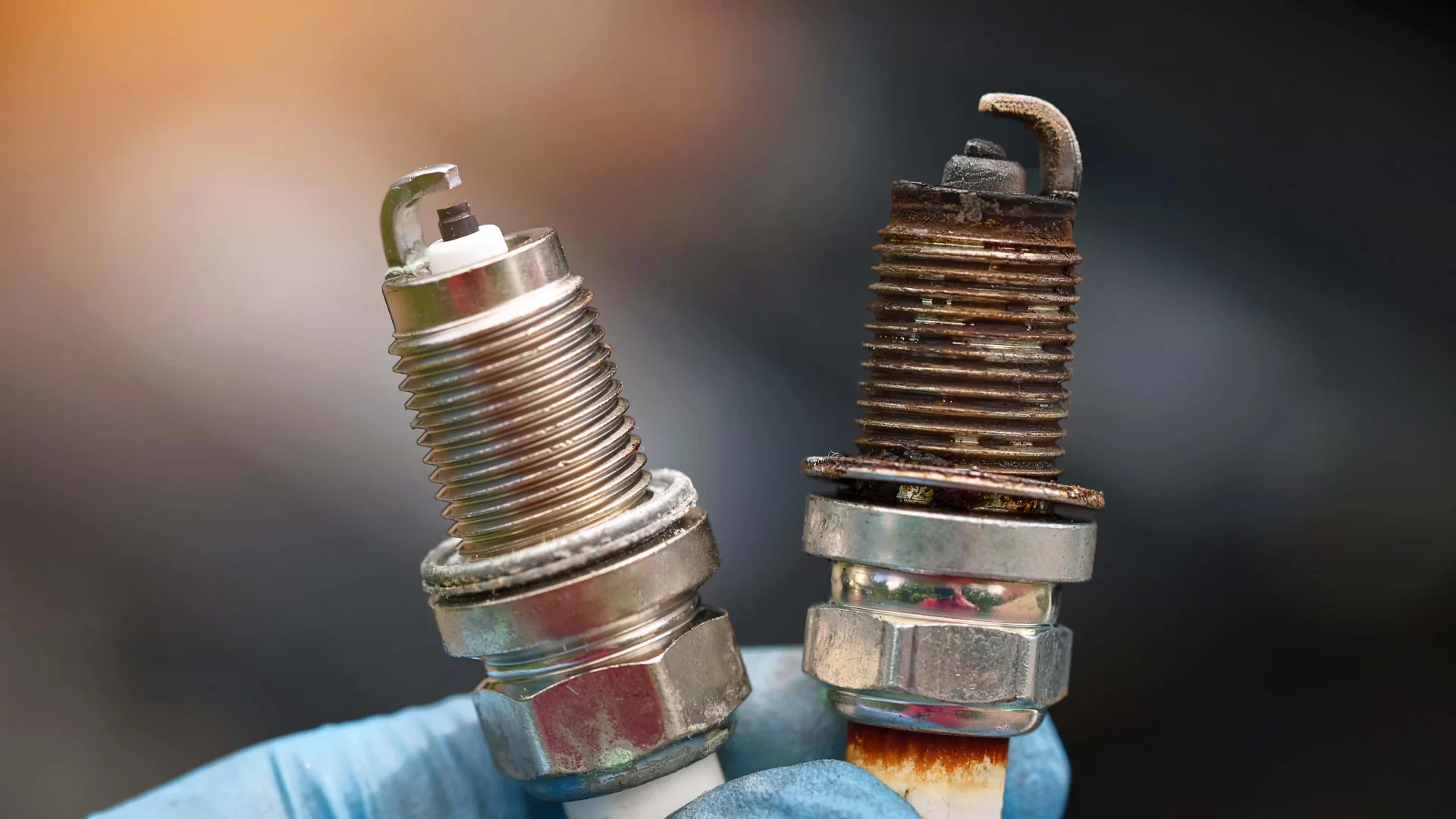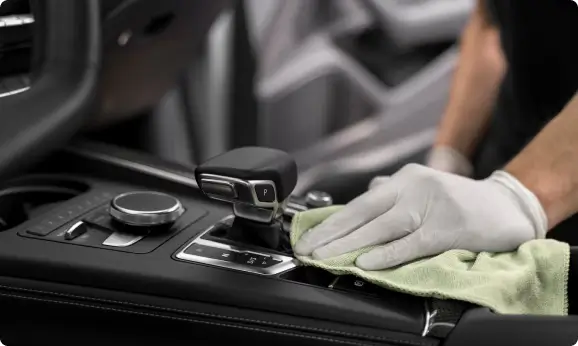Gallery
Brake Pad Replacement in Dubai
Price
Reviews
write a reviewRelated Services
Our Team
When it comes to vehicle maintenance, one of the most critical components to focus on is the braking system. A well-functioning car brake system is essential for ensuring your safety on the road, as well as the safety of your passengers and other road users. At the heart of the car brake system are the brake pads, which play a vital role in bringing your vehicle to a stop. With so many options available, selecting the right pads for your vehicle can be a real challenge. In this article, we’ll provide you with a comprehensive guide to choosing the right pads, and help you make an informed decision that meets your needs.
Understanding Brake Pads
Brake pads are a vital part of your car brake system. They have been designed to convert the kinetic energy into heat, which you use to get safely stopped. They usually come in the form of friction material bonded with a metal backing plate and are manufactured to wear out with intensive use. So, car owners have to have their brake pads replaced once they start losing contact because of wearing down.
Signs of Worn-Out Brake Pads
So, how do you know if the lifespan of your car brake pads has finished with time? Here are some common indications of worn-out brake pads:
- Squealing or grinding noises on hitting the car’s brakes.
- Spongy or soft feel to the brake pedal.
- Vibration or pulsation while braking.
- Longer stopping distance.
- Visible wear on the brake pads, in case you can see them.
Knowing the warning signs of worn-out brake pads is very important so that you can be safe on the road. It is highly important for a driver to know about the common warning signs, that include the squealing brake noise or grinding when braking, a soft feel in the brake pedal, brake warning light, the visible wear signs on the pads, etc. Remember, replacing the brake pads on time will ensure a continued lifespan and safety of your car.
How Often to Replace Brake Pads
Replacement frequency is related to a number of factors that include but are not limited to the following:
- Driving habits: aggressive driving, sport mode driving, frequent city driving, etc.
- Road conditions: hilly, mountainous terrain, etc.
- Car model and weight.
- Material and quality of brake pads.
Car brake pad replacement must be done on average in the range of 30,000 to 50,000 miles. Again, this may vary, and the best thing to do is to consult either your owner’s manual or expert technicians.
The Brake Pad Replacement Process
Normally, the car brake pad replacement process includes the following:
- Remove the wheels: The wheels need to be removed to expose the pads.
- Remove the caliper: The brake caliper is the housing that contains the pads. It needs to be removed to access the old pads.
- Remove the old brake pads: The old pads are taken out and examined for wear and tear.
- Install the new brake pads: A new set of pads is installed, and the brake caliper is reinstalled.
- Bleeding of the brake system: If air is present (which may have entered during the car brake pad replacement process), it is to be vented out of the car’s braking system.
While the procedure for the replacement of brake pads seems really complex, this area of brake service is a maintenance area that requires attention to detail and experience. The steps listed above guarantee safety and successful replacement; however, in case of uncomfortable feelings regarding the procedure, it is highly recommended to get skilled technicians to do the brake job to avoid any possible risks or complications.
Brake Pad Replacement Cost
The cost of replacement will vary greatly, based on many factors, including the following:
- Type and make of your car.
- Brake pad material and quality.
Factors Affecting Brake Pad Replacement Cost
The cost of having your car serviced may be influenced by several factors, including those listed here:
- the cost of labor, depending on location and mechanic expertise;
- the material and quality of the pads, where high-performance pads are higher in price compared to standard ones;
- the type and make of your vehicle, where luxury and high-performance vehicles require higher-priced pads.
So, these costs vary greatly depending on the type of vehicle, quality of the brake pads, labor costs, and location. These factors will help you reach the best price and make a well-informed decision with proper budgeting for this important maintenance task. After all, although it has to do with cost, your road safety is more important than anything else, and it depends on using quality pads and a professional brake service.
Why Choose a Professional Brake Pad Replacement Service?
Even though it is possible to do the replacement of brake pads yourself, professional brake service and replacement are highly recommended due to a number of reasons. These include:
- Safety: Pad replacement requires special knowledge and expertise to make sure everything is done properly.
- Convenience: A professional mechanic saves time and many hassles.
- Warranty: A professional mechanic replaces the brake pad according to the specifications of the manufacturer, which in essence, will serve as your vehicle’s warranty.
Convenience, expertise, peace of mind: here are a few other benefits you can consider. By handing your vehicle over to an experienced mechanic, you are guaranteed a safe and effective process of replacement, avoiding all the risks and complications that may come about. This is invaluable in having better brake performance and safety while on the road.
DIY vs. Professional Brake Pad Replacement
Car owners may consider the replacement of pads themselves, as apparently doing this may save money. However, there are quite a few risks associated with this approach:
- Safety risks: Improper pad replacement may lead to accidents and physical injury.
- Damage to your vehicle: Improper brake pad replacement may cause damage in the overall car brake mechanism, which surely will be more costly to repair.
In the case of brake pad replacement, there are two options: either you can opt for DIY or choose a professional service. While DIY brake pad replacements might sound cost-effective, it is quite important that you weigh the risks versus benefits. If you lack the necessary experience in terms of pad replacement, then a professional service is recommended to be chosen for a safe and efficient process. Bear in mind that your safety on the road is of utmost priority, and only excellent service from a professional mechanic can provide you with that level of expertise and peace of mind that you need when driving.
Choosing the Right Brake Pads
Some features to consider in choosing the right brake pad for optimal performance in your vehicle include:
- Brake Pad Material: High-quality materials are necessary to ensure the right vehicle handling while corresponding to the demands your driving habits place on them.
- Brake Pad Type: Buy pads that have been manufactured for the type of the braking system installed on your vehicle.
- Warranty: Buy pads that have a warranty or guarantee.
Proper selection of pads is the most crucial decision for any vehicle, as it ensures not only maximum performance but also safety, as well as the reduction of the overall maintenance costs. A choice based on certain considerations like the type of material, its quality, and compatibility will fulfill one’s needs and support optimal braking performance. Keep in mind that although high-quality pads may be more costly, they will pay off in the future because of better safety, reduced wear and tear on other elements of the entire brake system, and overall lower maintenance costs.
Importance of Regular Brake Maintenance
Brake maintenance plays a very important role in terms of regular car servicing, ensuring safety and performance. Here are some routine maintenance tips for your car brakes:
- Check the wear and tear of your brake pads regularly: Perform a check on your brake pads every 12,000 to 15,000 miles.
- Have a regular check of your brake fluid level: Check that your brake fluid is at the recommended level.
- Have a yearly inspection of your brakes: Have your brakes checked annually by a professional mechanic to spot problems.
Follow these tips and recommendations to create a safe and strong braking system in your car. Replacing the brake pad is a crucial process that must not be taken carelessly.

